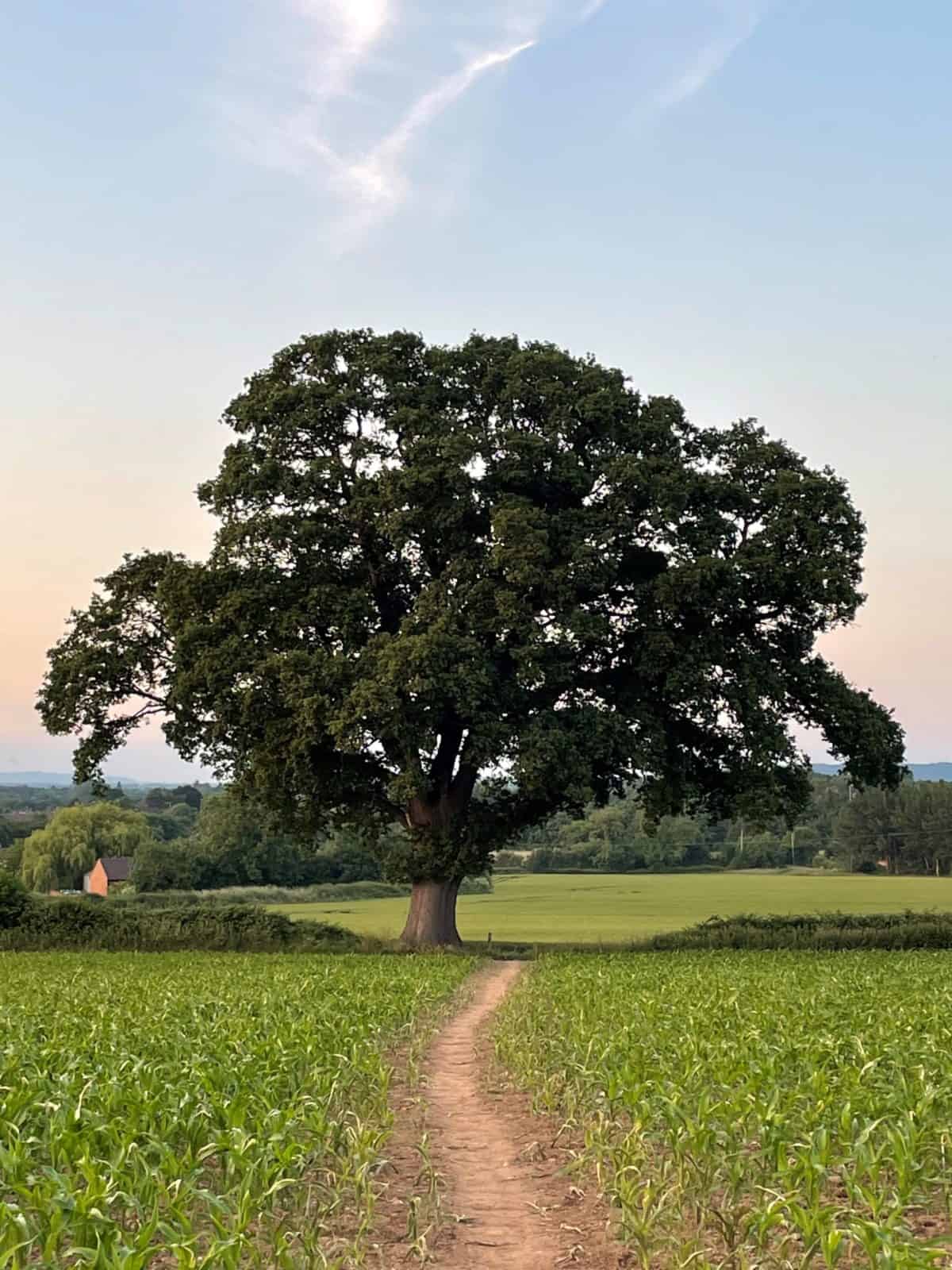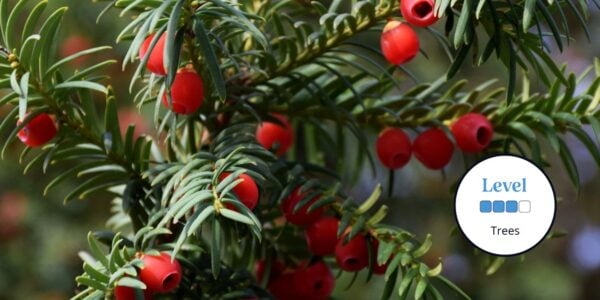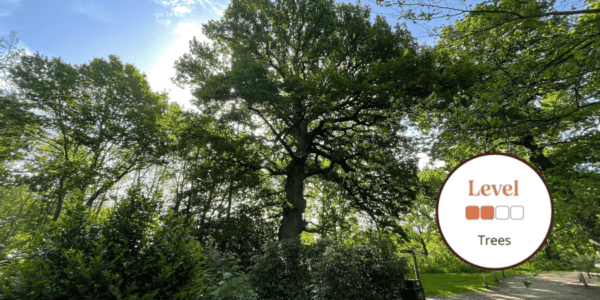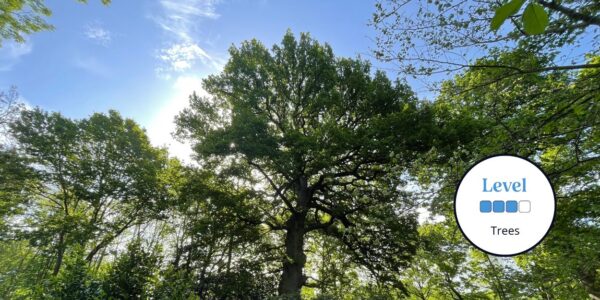This weekend botanical tree course will equip you with the skills needed to confidently identify native broad-leaved trees; focusing on accuracy and diagnostic features.
Early autumn is an excellent time to turn our attention to identifying broad-leaved trees! Soon they will start to transform our landscapes into a blaze of colour that cannot go unnoticed. Now is the time to learn what you can from the foliage and fruits before needing to rely on twig formation and winter silhouettes to help in identifying these important members of our natural heritage. Your learning will take place within the 12-hectare estate of the Preston Montford Centre, nestled in the heart of Shropshire and surrounded by a rich range of habitats.
Many broad-leaved species appear similar, and even some seemingly simple groups can be complex to unravel and differentiate e.g. Betula and Quercus. Much of the course will be spent looking at specimens and getting to grips with the the terminology that refers to the shape of leaves and the structure and classification of fruits. You will also practice working with different identification keys in the presence of our expert tutor.
Trees and shrubs make up an obvious feature of the British landscape, from lowland heath-land species, to upland and montane forests rich with bryophytes and lichens. However, our native and non-native trees are coming under direct threat from a number of challenges: climate change, pollution, development of ancient woodland sites, and a number of diseases and pests. Government agencies, forestry companies, conservation charities and other organisations are undertaking widespread planting schemes to counteract this. The challenge ahead is ensuring that this is sustainably done, utilising appropriate species and sites – a sound understanding of broad-leaved trees and their identification will be key to this.
Tutor: Mark Duffell
Mark Duffell has had a lifetime interest in plants, gaining the RHS Diploma in Horticulture and completing an MSc in Biological Recording. He now runs Arvensis Ecology, splitting his time between conducting botanical surveys and teaching botanical identification and survey techniques to undergraduate and postgraduate students, consultancies and environmental organisations.
Example Timetable
Example Timetable
This timetable is subject to change but should give an outline of what to expect.
If you have booked accommodation with the centre your bedroom will be ready from 3.00 pm onwards on the day of arrival and we ask that you vacate by 9.30 am on the morning of departure.
If numbers are sufficient a station pick up will be arranged at 5.30 pm from Shrewsbury Station.
Please arrive in time for the evening meal at 6.30 pm.
The course starts after dinner with a classroom session 7.30 pm - 9.30 pm
The course ends at 4.00 pm on the final day.
Time will be made available for eating packed lunches during the day
Friday
19:30 Introduction to the course; overview of what makes a broad-leaved tree; major families of broad-leaved trees.
Saturday
09:30 Looking at vegetative identification features; using keys to identify species (a range of keys and resources will be shown) - working in groups and individually.
12:30 Lunch
13:30 After lunch, a visit to Preston Montford grounds to view a range of species in the field and identify them using keys and resources.
18:00 Break before dinner (opportunity to continue informally in classroom if desired)
18:30 Dinner
19:30 View a range of plant material from different groups (e.g. Acers, Betula, Quercus etc.) - working in small groups/individually.
Breaks taken during the day as appropriate.
Sunday
09:30 Meet in classroom. Review any features as required for an hour.
10:30 Leave for Attingham Park, a National Trust property with both arboretum, plantation and semi-natural woodland.
15:30 Summary session back at field Centre.
What's Included
What’s included?
- Classroom learning covering the theory of the subject
- Field excursions to apply new knowledge
- Expert tuition for which we are renowned
- Clear objectives and progression
- All meals provided
You can rest assured that the absolute best content from an expert in environmental education will be provided. In choosing an FSC course, you will be joining thousands of people who learn with us each year.
For course bookings including full board accommodation, please note bathroom facilities maybe be shared
Before You Attend
There will be a member of staff with first aid training and access to a first aid kit on site. If you have special medical or access requirements, please let us know as soon as possible so we can make any necessary adjustments.
What to bring
Please bring the following with you if you can:
- Hand lens (x10 magnification) - can be borrowed from the Centre.
- Appropriate casual clothing.
- Stout shoes or boots (wellies can be borrowed from the Centre).
- Waterproofs (just in case!) – these can be borrowed from the Centre.
- Small rucksack or bag.
- Lunchbox.
- Water bottle and/or thermos flask.
- Notepad and pens.
- Binoculars if you have them.
- Clear plastic ruler (available to borrow from the centre).
Recommended Reading
- Stace C.A. New Flora of the British Isles 3rd Ed. (2010). CUP
- Johnson, O. and More, D. Collins Tree Guide (2006) (or others) for trees.
Sorry this course booking is closed




